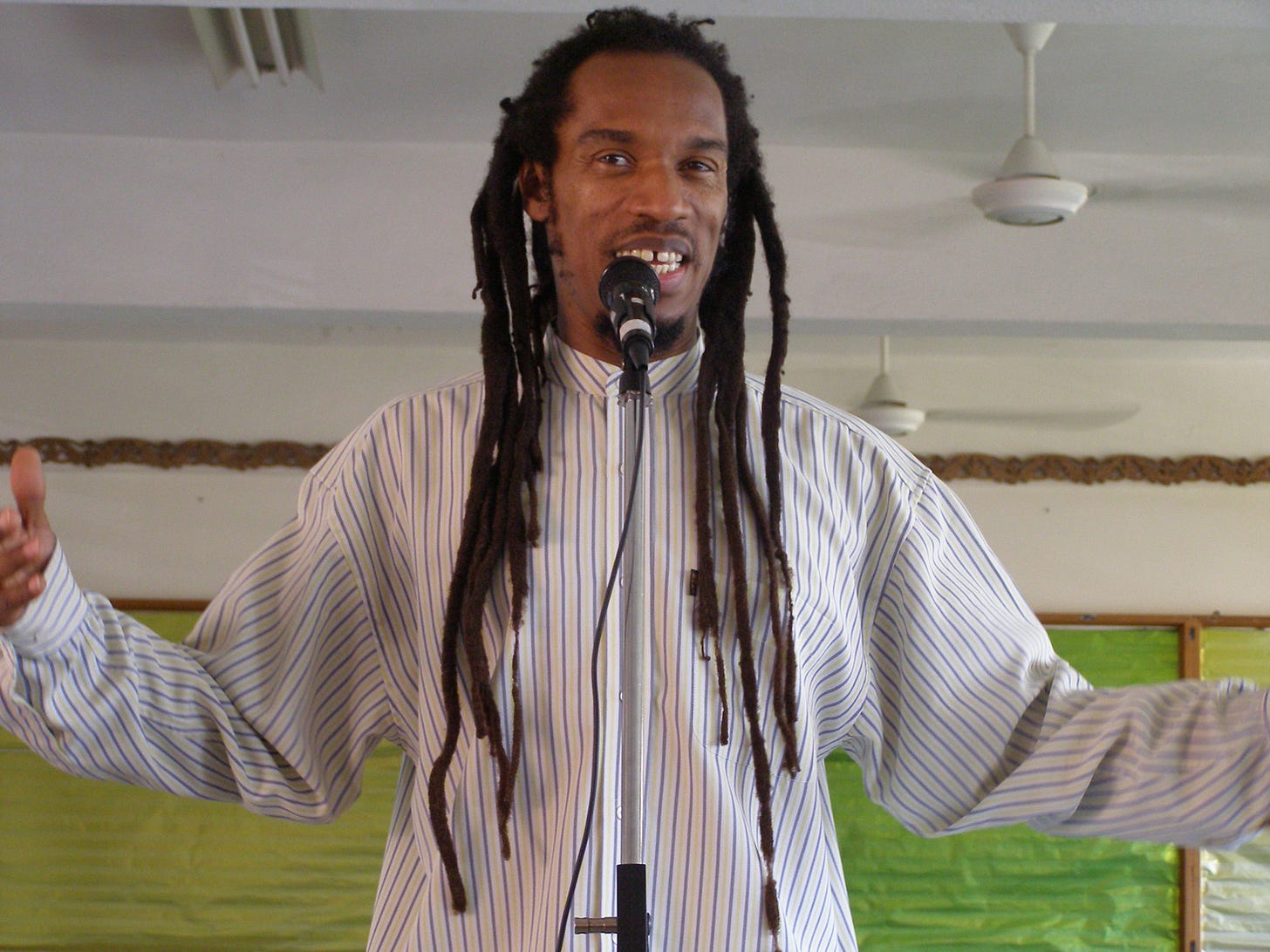Poems published in their hearts
National Canal Laureate Roy MacFarlane on being inspired by the great Benjamin Zephaniah

Benjamin Zephaniah spoke of making poetry simple and accessible to all people. He didn’t just want to read poems, he wanted to perform poems, rooted in the oral traditions, bringing poetry to life. His mantra regarding poetry can be found in the powerful poem ‘Dis Poetry’. “Dis poetry is not afraid of going ina book / Still dis poetry need ears fe hear an eyes fe have a look.”
Benjamin’s desire for poetry needing ‘ears fe hear an eyes fe have a look’ was honed in Handsworth, the West Midlands town where he grew up — first as a young teenager preaching in church in the 1970s and then surviving bullies in the school yard by making people smile with his words. By the time he was 21 he was writing and performing poems for anti-racist demonstrations against the National Front.
Benjamin straddled the world of reggae and sound systems as well as the punk and rock scene where he could be seen on TV on Channel 4 chanting lyrics. His was a face and voice for those who struggled to see representation of themselves on the screen or in books back in the 1980s.
His influence on multi-cultural Britain cannot be underestimated. With his flashing locs, energetic performances jumping and prancing on the stage, speaking a mix of Brummie-Jamaican patois, he blazed a trail and opened doors of literature for others of colour to follow.
He became a national treasure, the people’s laureate after refusing an OBE in 2003. As he wrote at the time: ‘Up yours, I thought. I get angry when I hear that word ‘empire’; it reminds me of slavery, it reminds of thousands of years of brutality, it reminds me of how my foremothers were raped and my forefathers brutalised.’ He was able to be all things to all people through his poetry, the voice of the oppressed rocking the stage with punks and rockers, chanting the struggles of the working class, fighting against apartheid and other world struggles.
My first encounter with Benjamin’s poetry was as a Youth and Community worker. I delved into the works of Linton Kwesi Johnson, Zephaniah and Jean ‘Binta’ Breeze. They were like older brothers and sisters who had experienced the harsh realities of racism, such as the notorious ‘sus’ laws of stop and search. Artists merging their Caribbean roots with British culture to make something new. They were the vanguard of black poets and writers articulating and chanting the Black British experience.
Keep reading with a 7-day free trial
Subscribe to Boundless Magazine to keep reading this post and get 7 days of free access to the full post archives.



